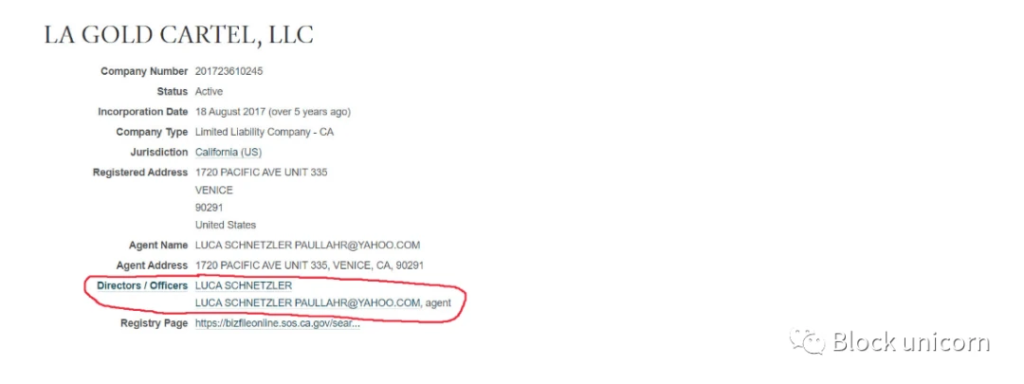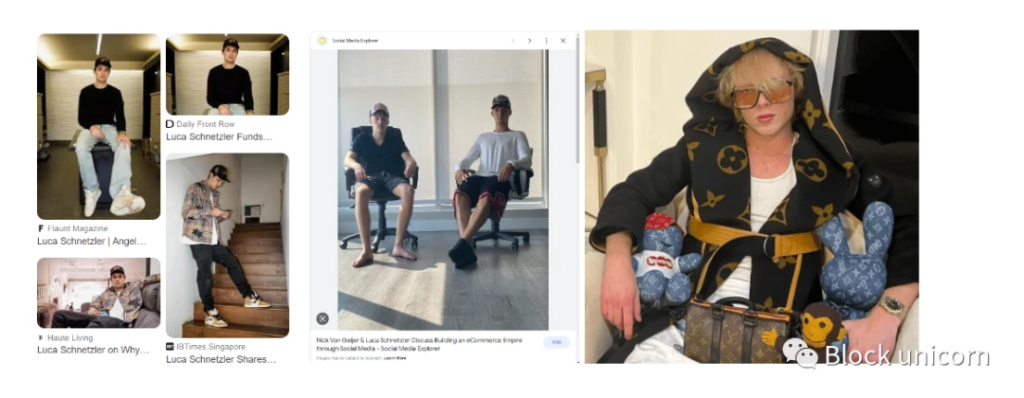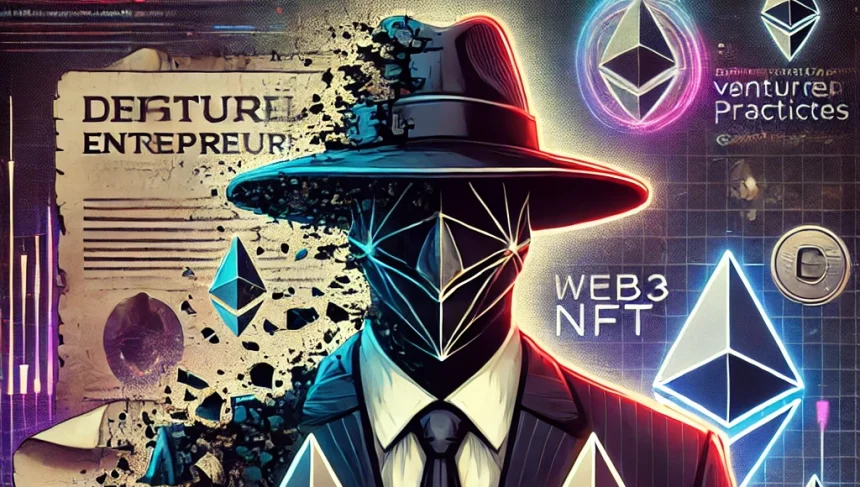The Web3 space, known for its rapid innovation and disruptive potential, has also seen its share of controversies. Among the names frequently discussed in this context is Luca Netz, the current CEO of Pudgy Penguins. Netz’s journey through various ventures has left a trail of allegations, controversies, and significant impacts on the Web3 community. This article delves into Netz’s past, exploring the controversies surrounding his business practices, failed ventures, and efforts to reshape his public image.

Early Ventures and Questionable Practices
In 2017, Luca Netz founded “LA Gold Cartel, LLC,” a company that quickly became a subject of scrutiny. The business focused on selling counterfeit jewelry and electronic devices, marketing these products as genuine. Customers were often deceived by the use of images of authentic items in advertisements. One of the most criticized aspects of this venture was its pricing model. Products were frequently offered as “free,” with shipping costs that far exceeded industry standards. This practice, which many consider deceptive, is viewed as unethical and potentially in violation of California consumer protection laws.
Adding to the controversy, Netz operated a subscriber-only Discord group called Netz Trade. This platform offered trading advice and “automated trading signals,” drawing individuals seeking quick financial gains. Concurrently, Netz launched a $1,700 dropshipping course that promoted unconventional strategies such as purchasing Instagram accounts with large followings, buying fake likes, and generating fake comments. While these methods were presented as ways to boost sales, they were criticized for fostering deceptive marketing practices and undermining consumer trust.

The NFT Boom and Subsequent Failures
As the NFT space began to gain traction, Netz entered the scene with several projects. However, these ventures were marked by unfulfilled promises and significant financial losses for investors. Among the projects associated with Netz were Spooky Boy Country Club (SBCC), Spooky Boy Mansion Party (SBMP), Demi Gods Universe (DGU), Donut Shop (DS), and Cookies N Kicks (CNK). Each project initially generated substantial investor interest, driven by ambitious promises ranging from animated series to exclusive sweepstakes. Unfortunately, none of these promises materialized.
Case Study: Demi Gods Universe (DGU)
One of the most notable failures was the Demi Gods Universe (DGU) project, launched on December 21, 2021. A total of 3,120 NFTs were minted at a price of 0.1 ETH each, generating 312 ETH, or approximately $1.37 million at the time, for Netz and his team. However, the project’s value plummeted by 99.84%, with each NFT worth just $0.74 compared to the initial mint price. The project’s Discord and website were eventually shut down, leaving investors with worthless assets and significant financial losses. This pattern of overpromising and underdelivering became a recurring theme in Netz’s ventures.
Other Notable Failures
Spooky Boy Country Club (SBCC) and Spooky Boy Mansion Party (SBMP) also drew significant attention. These projects aimed to build thriving NFT communities with exclusive perks. However, much like DGU, they failed to deliver on their promises. The lack of transparency and communication with investors further eroded trust. The closure of project websites and Discord channels left many questioning the intentions behind these ventures.

Acquisition of Pudgy Penguins
In April 2022, Netz made headlines by acquiring Pudgy Penguins for 750 ETH, valued at $2.5 million at the time. Pudgy Penguins, a prominent NFT project, had garnered a strong community and significant market interest. Netz’s acquisition raised eyebrows due to the source of funding, which was allegedly traced back to profits from previous NFT projects accused of being “rug pulls.”
The term “rug pull” refers to a situation where project creators abandon a venture after securing investor funds, leaving participants with worthless assets. Critics argue that Netz’s history with failed NFT projects and the questionable origins of the funds used for the Pudgy Penguins acquisition cast a shadow over the legitimacy of the deal. Despite these concerns, Netz sought to rebrand and revitalize Pudgy Penguins, positioning himself as a visionary leader in the Web3 space.
Efforts to Suppress Negative Coverage
In addition to his controversial ventures, Netz has faced accusations of attempting to suppress negative information about his past. Reports suggest that Netz has employed various tactics to remove damaging content from the internet, raising concerns about media freedom and transparency.
One such example involved the use of fake copyright takedown notices, also known as DMCA notices, to target articles critical of Netz. An article from Odaily News detailing Netz’s alleged fraudulent activities was reportedly removed following a fake DMCA notice. Such actions not only question Netz’s commitment to accountability but also highlight the challenges faced by journalists and platforms covering controversial figures in the Web3 space.
Impact on the Web3 Community
Netz’s history of controversial practices and failed ventures has left a lasting impact on the Web3 community. Investors who participated in Netz’s projects often faced significant financial losses, eroding trust in the broader NFT market. Critics argue that individuals like Netz exploit the decentralized nature of Web3 to engage in unethical practices without facing significant consequences.
The rise of decentralized technologies has emphasized the importance of transparency, accountability, and community trust. However, Netz’s actions highlight the vulnerabilities within this ecosystem. The lack of regulatory oversight in the Web3 space has allowed questionable practices to thrive, raising concerns about the long-term sustainability of the industry.
The Road Ahead
As the CEO of Pudgy Penguins, Netz faces the challenge of rebuilding trust and demonstrating his commitment to the Web3 community. While he has taken steps to revitalize the project, including launching new initiatives and engaging with the community, his past continues to overshadow his efforts.
Critics argue that true accountability requires more than surface-level changes. Netz’s ability to address the concerns surrounding his past and take meaningful steps toward transparency will be crucial in shaping his legacy. The Web3 community, known for its emphasis on innovation and collaboration, has the potential to hold leaders accountable and foster a more ethical and sustainable ecosystem.
Conclusion
Luca Netz’s journey through the Web3 space serves as a cautionary tale of the challenges and pitfalls within a rapidly evolving industry. From questionable business practices and failed NFT projects to efforts to suppress negative information, Netz’s actions have had far-reaching implications for the Web3 community. As the industry continues to grow, the importance of transparency, accountability, and ethical leadership cannot be overstated. Netz’s ability to navigate these challenges will ultimately determine his place in the history of Web3.







